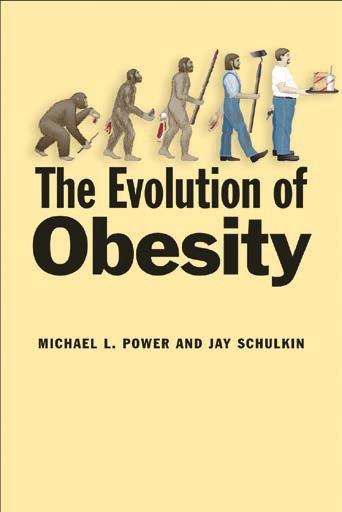
Physiology News Magazine
Book review: Evolution of Obesity (Michael L Power and Jay Schulkin)
Membership
Book review: Evolution of Obesity (Michael L Power and Jay Schulkin)
Membership
Josh Arnold
Southampton Solent University, UK
https://doi.org/10.36866/pn.96.43

It is becoming increasingly hard to shy away from the presence of obesity in today’s society. In direct contrast to the on-going search for a ‘magic bullet’ cure, Power and Schulkin present a powerful reminder concerning the true complexity of the problem in hand. Providing a comprehensive overview of the evolutionary factors that predispose our nutritional and physical activity behaviours, Power and Schulkin form a well-constructed discussion, of interest to both the neophyte and the experienced academic reader alike. With copious references for the enthusiastic reader to follow up on, this one-off book focuses on a systems approach, integrating numerous levels of biology into a comprehensible whole.
The book is highly successful in its attempt to unpick and review the potential root causes of the obesity epidemic, suggesting a mismatch between our evolutionary biology and the modern-day society in which we exist. The first half of the book progressively guides the reader through specific aspects of our evolutionary history as they pertain to our biology. Setting the reader up suitably, the second half of the book explores the ways in which the modern day environment interacts with our evolved biology, and how this could potentially leave us susceptible to sustained weight gain and consequently obesity. Are the selective adaptations, which have previously dictated our success as a species, now working against us and threatening our future success? Power and Schulkin cleverly suggest: ‘it is not surprising that many people get fat in this new environment; it is perhaps more surprising that many people remain lean.’
The Evolution of Obesity was a relaxing, informative and extremely easy to read book. The delivery of complex material and academic rigor is undoubtedly central to the book’s success, made even more impressive by doing this without overwhelming or boring the reader. Occasionally repetitive in its message, overemphasizing points in places, there is little confusion regarding the take-home messages from each chapter. It equips the reader with a useful up-to-date context and background, upon which future work in this area can be framed. I would fully recommend this text to all academics and applied practitioners working in the area of public health, physiology and medical care. Though generally academic in its approach, The Evolution of Obesity is an enjoyable read from which everyone can obtain important information. Attributing the present-day obesity epidemic to a wide range of factors Power and Schulkin make little attempt to propose potential solutions to the well discussed problem. Debate around this area would undoubtedly make for fascinating reading in a follow-up book.
Would you like to submit a book review to Physiology News? Please get in touch with us on magazine@physoc.org
